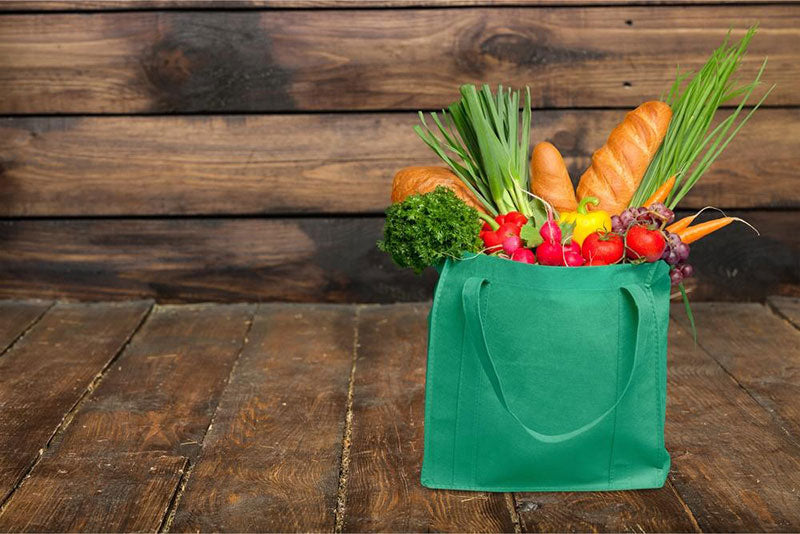
Weaving a Greener Future: How Alternative Grocery Bags Are Made
When choosing a reusable grocery bag, it is important to understand how each is made, and the impact each type of bag can have on the environment in future. Here is a short rundown of the manufacturing process for several of the most popular reusable grocery bags and how they stand up in terms of being eco-friendly:
Polypropelene Bags
These bags are spun, bonded, and usually not woven into shape from an easily obtainable and recyclable plastic called polypropylene. It is exceptionally strong and can be made from recycled materials. Furthermore, it can be dyed or printed in a wide variety of colors. The downside to this type of bag is that it is not as biodegradable as other bag materials, and it cannot be composted. Moreover, this type of bag is generally manufactured offshore in a handful of countries, so its manufacture doesn’t contribute to the economies and communities where it is used.Cotton and Canvas Bags
These popular bags are immensely durable and are manufactured from various cotton sources around the world. The fabric is soft to the touch, biodegradable (natural plant fibre), and can be machine washed in cold water. The downside to these bags, however, is that they have a heavy environmental footprint and may have a significant impact on global warming. Cotton requires a tremendous amount of water and tree-cleared land to cultivate, and cotton farming accounts for 16% of the world’s pesticide use. If you are going to choose cotton or canvas bags, make certain to choose organic options, as organic cotton is grown without pesticides.Jute Bags
These natural coarse thread bags are spun from natural plant fibres. Jute also has the distinct advantage of requiring no pesticides or irrigation to flourish, and is often referred to as hessian or burlap outside of its native Bangladesh. It is also a natural renewable resource, compostable and biodegradable, low cost, durable, and can be blended with other fabrics. Jute bags is truly one of the more promising plant fibre bags available that has the least ecological impact; however, it does come with a few drawbacks. Between scarcity of supply, low moisture resistance, and its need to be washed regularly to prevent bacterial cross contamination, jute has some issues to overcome in terms of its utility worldwide.
Each of these bags are a good choice for the ecologically conscious, but each has its own environmental caveats and quid pro quos. Be sure to research the type of reusable grocery bag you are purchasing carefully before purchasing, and please continue to help us be kinder to our planet through choosing reusable grocery bags.

